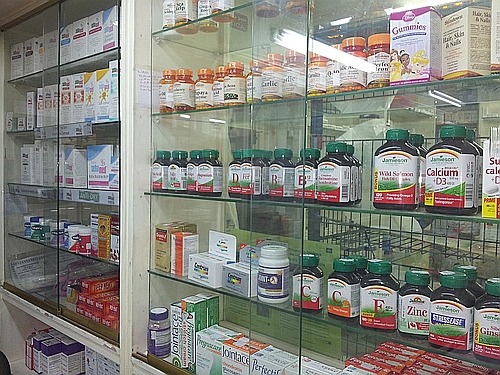
More than half of adult Americans take supplements with the expectation they will benefit. In one study, 61% of seniors took supplements, and two-thirds started without consulting a medical professional.1 Half of the subjects thought they had a good effect from over-the-counter supplements, and over half did not know whether they had experienced untoward effects or not because they weren’t aware of what to expect. It is time to take the mystery out of supplements.
Not just vitamin stores have nutritional supplements; every grocery store has plentiful supplies. This is because nutritional supplements are a multibillion-dollar industry—about 18 billion in the last count. And on the positive side, people taking supplements lead healthier lifestyles.2 However, I submit that supplement-takers are not necessarily leading healthier lifestyles because of supplements. They are likely more conscious of keeping their health and are motivated to do more, but that is my opinion.
It is not widely appreciated that whatever supplements you take are of no value whatsoever if not absorbed. Meals gear the body’s absorptive mechanisms up a notch, so most should be taken with meals. Mealtime signals the body to release stomach acid and digestive enzymes. Also, a theoretical advantage is that nutrients, especially antioxidants, in food are clearly superior, and taking them with meals seems advantageous. Taking nutrient supplements with meals is not universally determined but seems a good rule of thumb.
Also, the benefit cannot take place without absorption, and absorption cannot take place unless the supplement is available where absorption takes place. Most absorption takes place in the upper small bowel. For that reason, I prefer capsules to tablets in supplements. Capsules usually dissolve more rapidly and release contents more completely.
However, dissolving is not the primary criterion about which we should be concerned. The amount of absorption into the bloodstream is the real test. Tests comparing the absorption from formulations are scant, but some studies show capsular form is superior.3 This does not apply to prescriptive meds because the FDA tests absorption. The pharmaceutical industry recognizes that many think as I do and manufacture caplets—tablets shaped like capsules. They must think minimal of our mentation.
These substances are widely taken, sketchily regulated, and have broad health claims that are mostly unproven. Even Dr. Oz, the TV host doc, was roundly criticized for promoting an unproven weight loss product in which he had financial interests.
“Unlike drugs, dietary supplements do not require premarket review or approval by the FDA. Supplement manufacturers are responsible for determining that their products are safe and their label claims are truthful and not misleading—another fox guarding the henhouse. And, in addition, manufacturers are not required to provide that evidence to the FDA before marketing their products. If the FDA finds a supplement to be unsafe, it may remove the product from the market or ask the manufacturer to voluntarily.”4 “FDA regulates both finished dietary supplement products and dietary ingredients… Under the Dietary Supplement Health and Education Act of 1994 (DSHEA).”5
Thus, let the buyer beware (“Caveat emptor”) when taking supplements is a wise tact. This is especially true with concoctions for specific health needs, which have multiple substances. Broad unproven categories include men’s health; women’s health; brain health; and others. The average supplement for a specific health need has ten ingredients, and one I came across in a vitamin shop had over ninety!
- Schnabel K, Binting S, Witt CM, Teut M. Use of complementary and alternative medicine by older adults–a cross-sectional survey. BMC geriatrics 2014;14:38.
- Kofoed CL, Christensen J, Dragsted LO, Tjonneland A, Roswall N. Determinants of dietary supplement use – healthy individuals use dietary supplements. The British journal of nutrition 2015:1-8.
- van Rossem K, Lowe JA. A Phase 1, randomized, open-label crossover study to evaluate the safety and pharmacokinetics of 400 mg albaconazole administered to healthy participants as a tablet formulation versus a capsule formulation. Clinical pharmacology : advances and applications 2013;5:23-31.
- NIH. Supplements for Weight Loss Fact Sheet for Health Professionals In. http://ods.od.nih.gov/factsheets/WeightLoss-HealthProfessional/Dietary NIH: Office of dietary supplements; 2015.
- Dietary Supplements. In. http://www.fda.gov/Food/DietarySupplements/: FDA; 2015.

